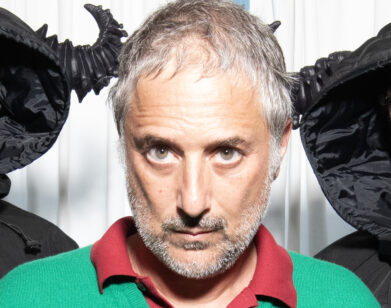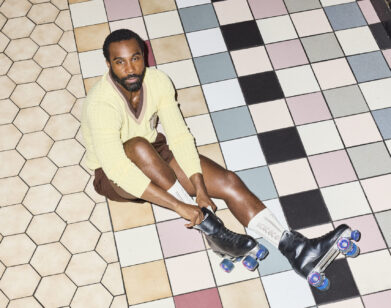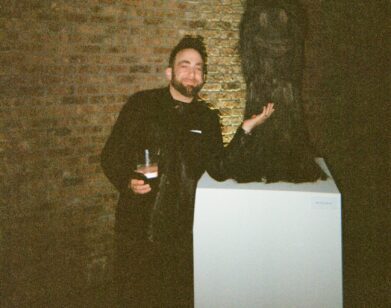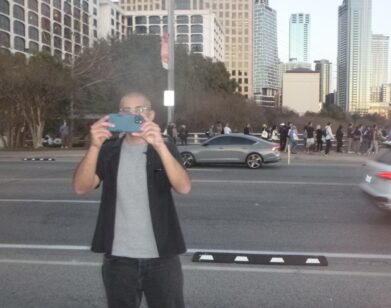Paul Feig Gets His Due
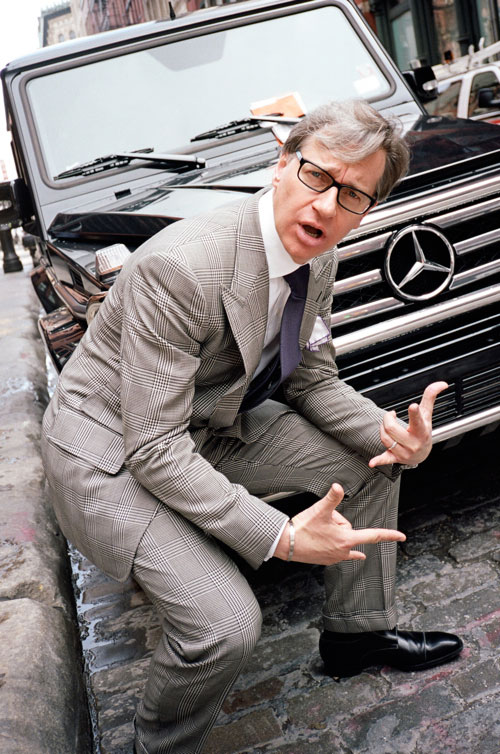
PHOTO BY JACK SIEGEL
If you’re a person with some level of interest in the world of screen comedy, chances are good you’ve been a Paul Feig fan for years without even knowing it. Until this month, Feig was probably best known for being the creator of the short-lived cult hit Freaks and Geeks (which starred some of today’s biggest stars, among them Jason Segel and James Franco, and which Feig co-ran with executive producer Judd Apatow). But he’s also written several books for adults and adolescents, directed memorable episodes of some of the best shows on TV (The Office‘s Olympics episode; Parks and Recreation‘s “Pawnee Zoo,” the first-season finale of Arrested Development, Mad Men‘s “Shoot,” and many, many more), and appeared onscreen in some unexpected places, including the TV version of Dirty Dancing and as Sabrina’s science teacher, Mr. Pool, on Sabrina, the Teenage Witch.
But his latest project—and biggest to date—is the film comedy Bridesmaids, which in ten days of release has been championed by critics, feminists, and comedy purists, and which already almost doubled its $32-million budget. If Feig used to be screen comedy’s best-kept secret, Bridesmaids all but ensures he won’t be out of the spotlight for much longer. Somehow, he found time to stop by the Interview office last week to talk to us about his varied résumé, his own wedding, the collaborators who make what he does possible, his Tom Ford suit, and a whole lot more.
ALEXANDRIA SYMONDS: So I checked Box Office Mojo last night and you were number one for Monday and Tuesday, and it looks like you’ve recouped your budget, so congratulations on all of those things.
FEIG: Thank you. I actually just got the report that we were number one again last night, too. Really, really exciting. It’s just a relief.
SYMONDS: Do you feel like you can exhale now and enjoy it?
FEIG: No, not yet. [laughs] I hate to be “dollars and cents,” but I’d like us to get to a certain level. I’d like to hit the hundred mark, just because that’s kind of where you get that validation—where people are like, “Wow, this really did its job.”
It’s become this thing, like if it performs, it’s going to prove something. It’s kind of silly that it’s become that, because, first off, there should be a million movies staring lots of women, so I don’t quite know why that didn’t happen. But then we really just set out to make a very funny comedy. I was definitely drawn to it by the fact that it was such a good movie for women, because I love working with actresses. I always have, I’ve kind of had my most fun and best luck working with female characters. I like writing them.
READ THE FULL INTERVIEW.


